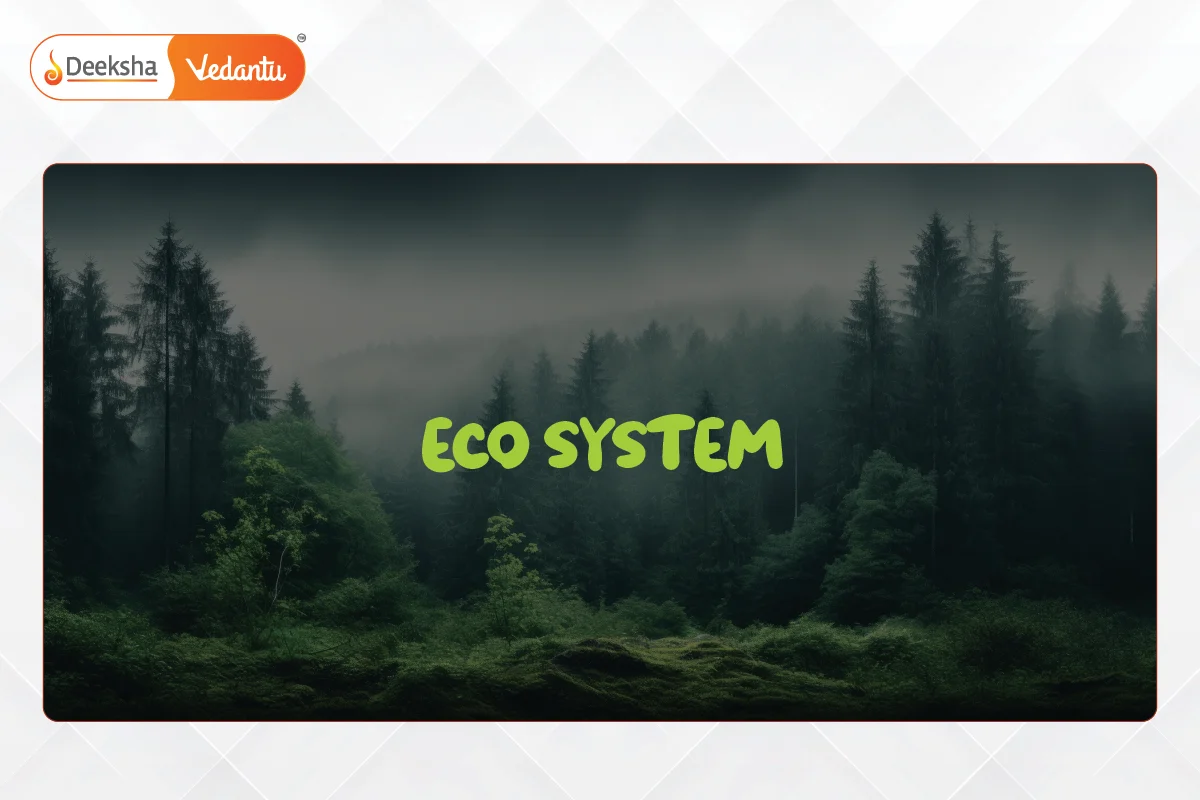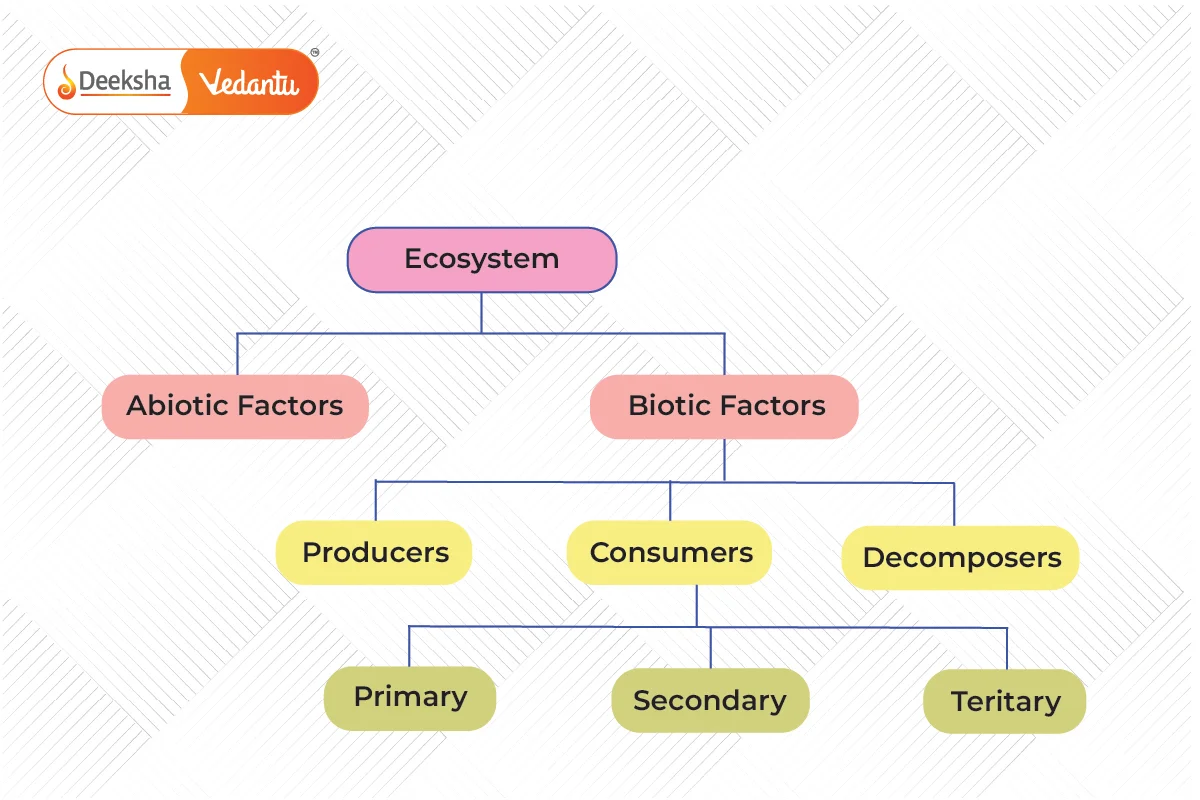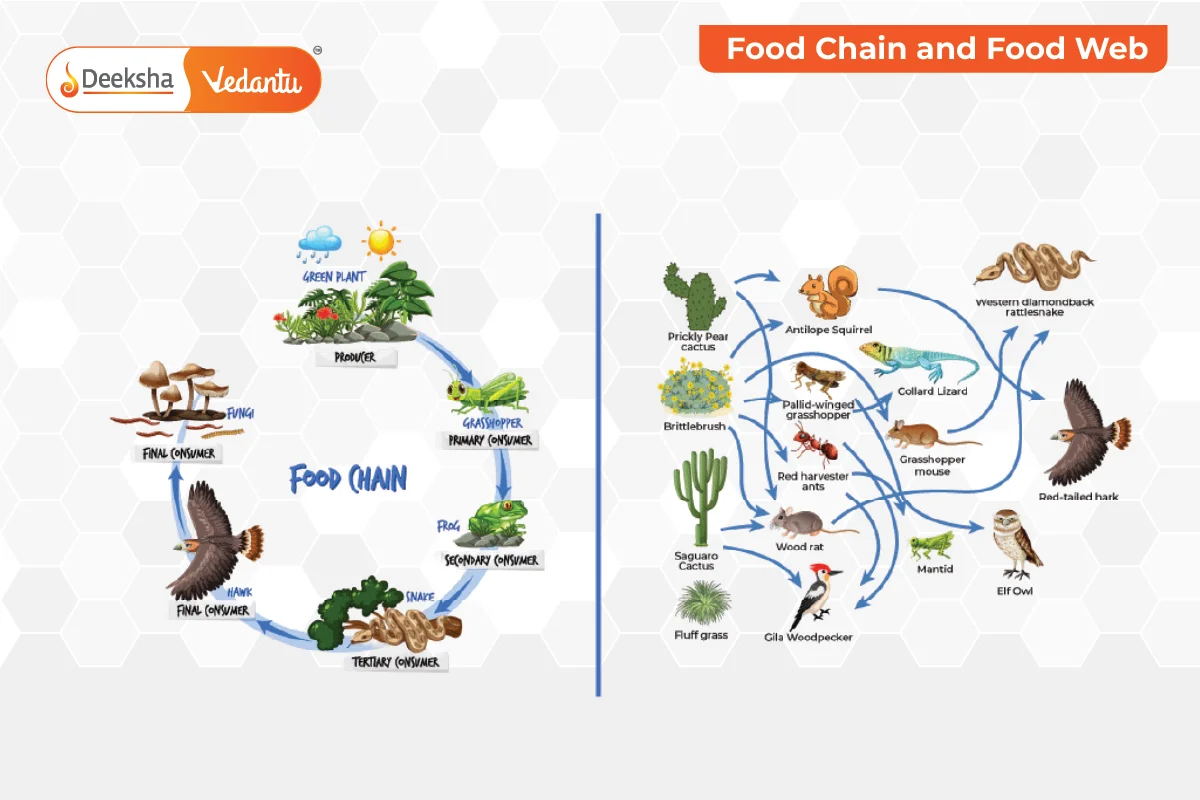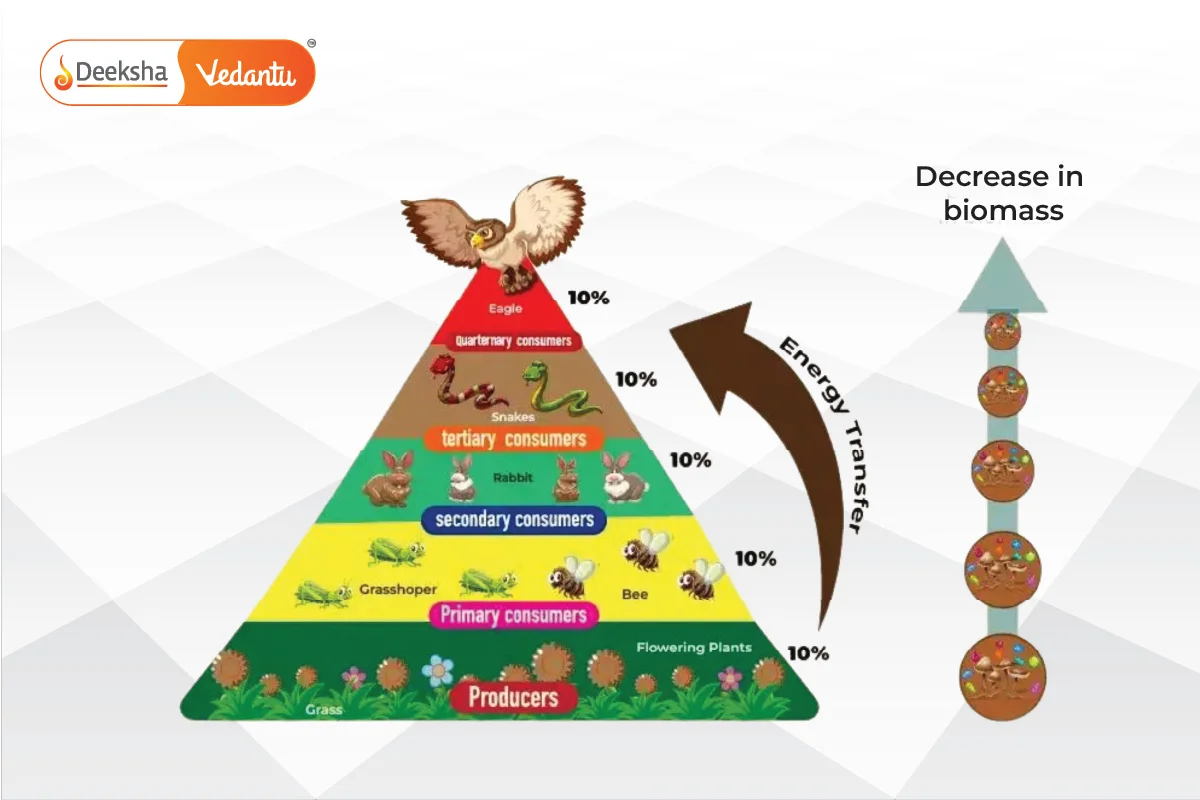Definition of an Ecosystem
An ecosystem is a community of living organisms interacting with each other and their non-living environment.
What is an Ecosystem?
An ecosystem is a unit of nature where living things (plants, animals, and microorganisms) interact with each other and with non-living elements (like air, water, and soil). The term “Ecosystem” was introduced by A.G. Tansley in 1935.

Structure of an Ecosystem
An ecosystem has two main components:
- Biotic Components: All living things in the ecosystem (plants, animals, bacteria).
- Abiotic Components: Non-living elements like air, water, soil, and sunlight.

Biotic Components
- Producers (Autotrophs): Plants that make their own food through photosynthesis.
- Consumers (Heterotrophs): Animals that eat plants or other animals.
- Primary Consumers: Herbivores that eat plants.
- Secondary Consumers: Carnivores and omnivores that eat primary consumers.
- Tertiary Consumers: Animals that eat secondary consumers.
- Quaternary Consumers: Top predators that have no natural enemies.
- Decomposers (Saprotrophs): Organisms like fungi and bacteria that break down dead matter and recycle nutrients.
Abiotic Components
Non-living parts of an ecosystem like air, water, soil, minerals, sunlight, temperature, and nutrients.
Functions of an Ecosystem
- Regulates ecological processes and supports life.
- Cycles nutrients between living and non-living parts.
- Maintains balance among different levels in the food chain.
- Helps in the synthesis of organic components.
Types of Ecosystems
- Terrestrial Ecosystem: Land-based ecosystems (forests, grasslands, deserts, tundra).
- Aquatic Ecosystem: Water-based ecosystems (freshwater and marine).
Terrestrial Ecosystems
- Forest Ecosystem: Composed of trees, animals, and microorganisms interacting with non-living elements.
- Grassland Ecosystem: Dominated by grasses and herbs, found in temperate and tropical regions.
- Tundra Ecosystem: Cold, treeless regions covered with snow most of the year.
- Desert Ecosystem: Areas with little rainfall, hot days, and cold nights.
Aquatic Ecosystems
- Freshwater Ecosystem: Includes lakes, rivers, ponds, and wetlands with no salt content.
- Marine Ecosystem: Includes seas and oceans with higher salt content and greater biodiversity.
Important Ecological Concepts

- Food Chain: The flow of energy from plants (producers) to herbivores (primary consumers) to carnivores (secondary and tertiary consumers).
- Food Web: A network of interconnected food chains within an ecosystem.
- Ecological Pyramids: Graphical representation of the number, biomass, and energy at each trophic level.

FAQs
A food web is a network of interconnected food chains within an ecosystem.
Ecosystems maintain balance through the cycling of nutrients, energy flow, and interactions among organisms.
An ecological pyramid graphically represents the number, biomass, and energy at each trophic level in an ecosystem.
A food chain is the flow of energy from producers (plants) to consumers (herbivores, carnivores) and decomposers.
Decomposers break down dead matter, recycling nutrients back into the ecosystem.
- Terrestrial Ecosystems: Forests, grasslands, deserts, tundra.
- Aquatic Ecosystems: Freshwater (lakes, rivers) and marine (seas, oceans).
- Biotic Components: Living things (plants, animals, microorganisms).
- Abiotic Components: Non-living elements (air, water, soil, sunlight)
An ecosystem is a community of living organisms interacting with each other and their non-living environment.






Get Social